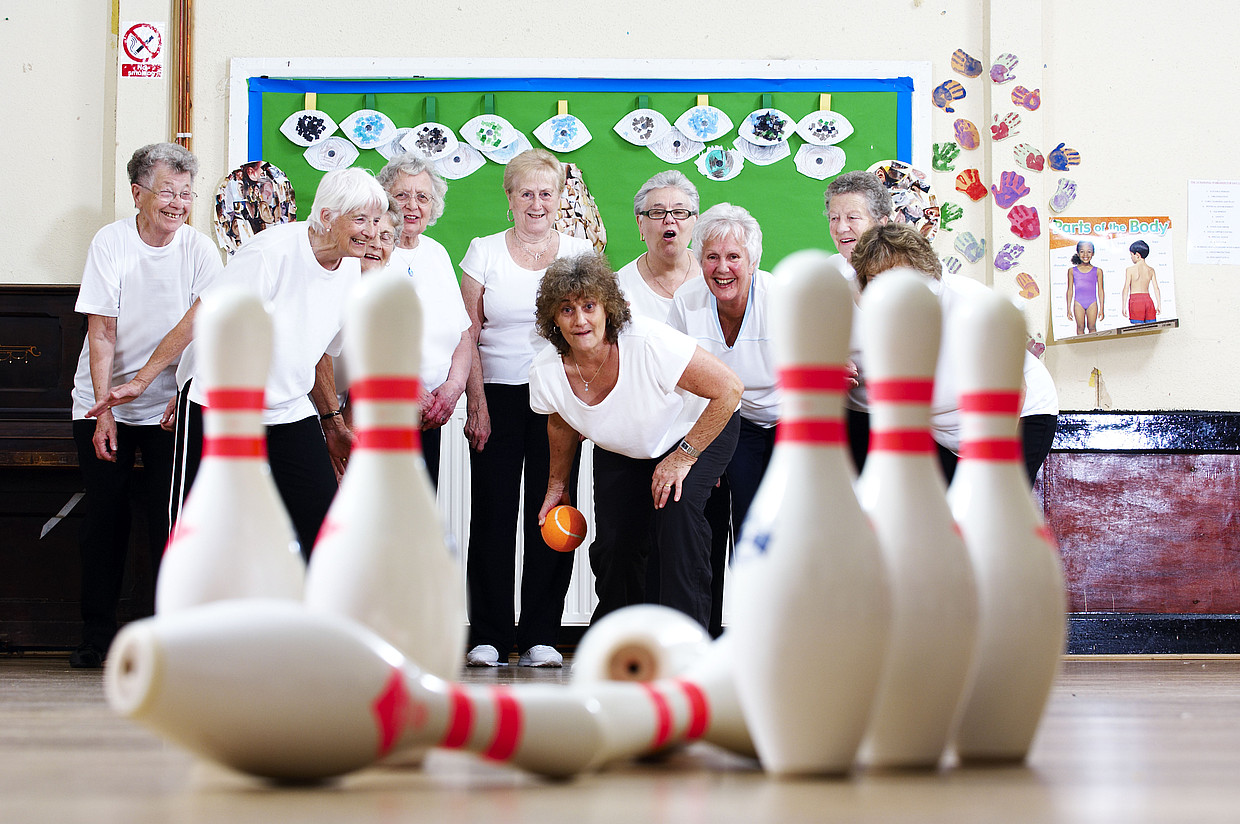Across the world, people are living longer. A baby girl born in the UK today can expect to live to the age of 83; for a boy, it is 79.
Globally, the number of people living today aged 60 and over has doubled since 1980, and by 2050 we can expect to see the number of people aged 80 or more quadruple to 395 million.
This increase in the number of people living to a ripe old age can be viewed as a public health success story. Yet although populations are living longer, many of these additional years are spent in ill health.
Over four million (or 40 per cent) of people in the UK over the age of 65 have a limiting long-term health condition, such as diabetes, heart disease, respiratory disease, cancer, arthritis and dementia.
Many of these conditions are linked to lifestyle and modifiable behaviours and declines in mortality have not been matched by declines in morbidity with marked inequalities between the least deprived and the most deprived areas remaining.
So the public health agenda aims to improve the health of our population to enable more years spent in good health which will help to reduce health inequalities across different social groups and reduce the growing financial pressure on our health and social care services.
Now more than ever, unhealthy behaviours such as smoking, drinking too much alcohol, inactivity and eating excessively are in the spotlight.
The NHS Five Year Forward View backs “hard-hitting national action on obesity, smoking, alcohol and other major health risks”, presenting a clear opportunity to tackle long term health conditions and ensure that people in old age are able to maintain their health, wellbeing and independence for as long as possible.
It is never too late to make a change
Our experiences throughout life can have a negative or positive influence on health, affecting the risk of chronic disease and other health outcomes in later life.
Timely interventions during midlife and beyond offer great potential to increase wellbeing, maintain health in both body and mind and reduce the risk of losing independence.
Research evidence sets out key actions for professionals to promote a healthy lifestyles for people in midlife and beyond. These include:
- Stopping smoking: it is never too late to stop smoking, and after the age of 35-40, a person loses three months of life expectancy for every year of continued smoking.
- Being more active: research shows that physical activity in older age has multiple benefits, including reduced mortality, improvement of physical and mental capacities and enhanced social outcomes.
- Reducing alcohol consumption: chronic conditions caused by alcohol misuse include liver cirrhosis, and evidence suggests that regular excessive drinking increases the risk of the most common forms of dementia, such as Alzheimer’s and vascular dementia
- Improving diet and maintaining a healthy weight: a healthy diet is key to staying well as people age, and there are a number of causes of malnutrition in older people including socio-economic hardship, a lack of knowledge about nutrition, disease and the use of medications and social isolation
A lot can be done to help improve and maintain general health and fitness that is of particular relevance to people over the age of 65, such as checking eye health, maintaining good oral health, getting hearing tested and being vaccinated against pneumococcal and flu.
And across the life course there may be times when people are more amenable to change, such as after retirement, when children leave home, when starting to care for older relatives or grandchildren, or during the menopause.
These are times when people may consider adopting new healthy behaviours or may be at risk of adopting unhealthy ones.
It is also important to note that the burden of risk factors and their consequences are not equally spread across society.
For example, having four unhealthy behaviours is five times more likely in people with no educational qualifications, compared with those with higher education.
Public health needs to find more innovative and effective solutions and work with local communities to identify what works in different circumstances.
Key settings: community and primary care
Inevitably as people age, their circle of friends diminishes as friends die and social isolation or loneliness can occur. This may result in reduced wellbeing and a greater risk of mental health problems or dementia.
Local interventions that tackle social isolation and loneliness by enabling and supporting older people to develop new connections in later life have been highlighted by experts as promising.
Partnership working within councils, with town planners, with social services and externally with the police, fire and rescue services is key to enabling people to get out and about and maintain connectedness to others.
Primary care has an essential role to play as practice staff care for individuals from cradle to grave. Important interventions that take place within primary care settings include immunisations, such as the flu vaccine, the NHS Health Check programme and screening programmes that start in midlife.
Increasing longevity and growing numbers of people with multiple health conditions means that the promotion of healthy ageing must be put in the spotlight.
The newly established Centre for Ageing Better is focusing on what works in the health ageing sector in order to bridge the gap between research, evidence and practice.
As public health professionals, we must do more to spread the message that what you do today, whatever your age, will influence how you fare tomorrow.

